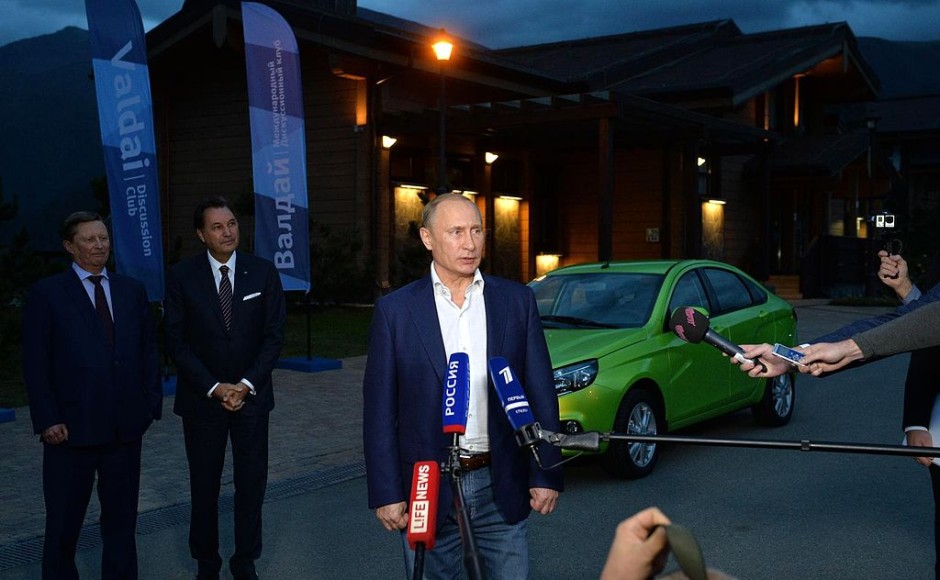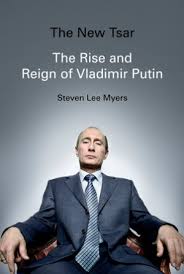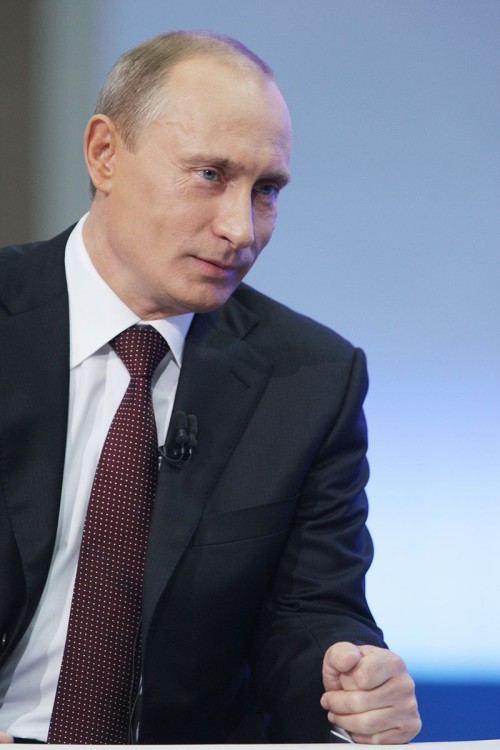
Vladimir Vladimirovich Putin is the man of the hour in international relations today. Under his stewardship, Russia has begun to reassert itself after a period of decline following the dissolution of the Soviet Union in 1991. Last year, Russia occupied and annexed the Crimea and sent “volunteers” and military equipment to Russian separatists in eastern Ukraine. On September 30, Russia intervened militarily in the civil war in Syria on the side of Syrian President Bashar al-Assad.
The Russian bear has awoken. What, one might ask, comes next?
Steven Lee Myers, the author of The New Tsar: The Rise and Reign of Vladimir Putin (Alfred A. Knopf), can’t peer into the future and predict what Russia’s omnipotent president has up his sleeve. But he’s more than capable of explaining how he got to where he is today.
In this impressive biography, Myers — a New York Times reporter who spent seven years in Russia as a correspondent — takes us on a journey from Putin’s humble beginnings in a decrepit communal apartment in Leningrad to his current status as Russia’s unrivalled strongman. In the main, he deals with Russia’s internal rather than external affairs.
Myers paints a picture of a highly competent, tough, focused, self-confident politician who’s likely to govern Russia indefinitely. So if you’re interested in Russia’s evolution and in its most dynamic leader since the dawn of the post-communist epoch, this book will serve you well.
Putin, born in 1952, hails from a working-class background. His father, a World War II veteran, was a factory worker/blue-collar communist apparatchik. His mother held a series of menial jobs. The small flat in which Putin was raised had no hot water or bathtub. The Putins shared a room with an observant Jewish family. By Myers’ reckoning, Putin’s relationship with his Jewish neighbors instilled in him an “unusual ecumenical tolerance and a disdain for the antisemitism that has long afflicted Russian culture.”
Although he grew up in a rough neighborhood, Putin developed an aversion to drinking and smoking and sloth and disorder. Regarding himself as the quintessential “Soviet man,” he joined the KGB — the Soviet version of the U.S. Central Intelligence Agency — in 1975 after studying law. His boss, Yuri Andropov, had created a network of psychiatric hospitals to lock up political dissidents. After nine years of service, Putin studied at the Red Banner Institute, a boot camp for spies that excluded Jewish and Muslim students.
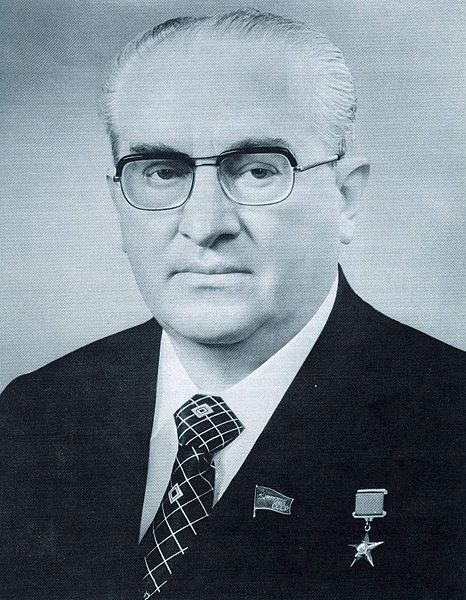
In 1985, Putin arrived in Dresden, East Germany, as a foreign intelligence officer. It was his first overseas posting, and it was there that he perfected his German and ability to please superiors. He ingratiated himself with the station chief, but privately mocked his antisemitism, which was pervasive in the KBG.
As a husband and father, Putin was a traditional male chauvinist, refusing to help with grocery shopping, cooking or household chores. He was “the provider and defender,” according to his ex-wife, Lyudmila. By her account, their marriage was stormy, possibly because he was a serial womanizer.
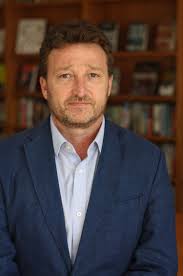
Despite his fealty to communism, Putin expressed admiration for some Soviet dissidents and sensed a need for reform and evolutionary change, “He never wanted the state to collapse,” writes Myers.
The dissolution of the Soviet Union traumatized Putin and put an end to his career in espionage, but as Myers says, he “landed on the winning side.” Anatoly Sobchak, a professor of law, a critic of Soviet communism who had advocated market reforms and the newly-installed mayor of St. Petersburg (formerly Leningrad), hired Putin as an adviser.
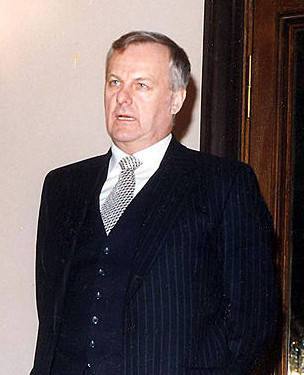
This would be his springboard to power and fame.
Sobchak left Putin in charge of attracting foreign investments to the city, and in this respect, he proved to be successful as a stubborn negotiator. Companies like Ford and Coca-Cola established branch plants in St. Petersburg.
Putin’s competence, loyalty and apparent resistance to corruption — an occupational hazard in post-communist Russia — so impressed Sobchak that he asked him to manage the parliamentary campaign of Russia’s Choice, the party of Russian President Boris Yeltsin, in St. Petersburg. Subsequently, Yeltsin’s chief of staff invited Putin to be one of his deputies. Putin was given the task of overseeing Russia’s properties abroad, from embassies to schools. He was then appointed director of the presidential administration, charged with administering relations with Russia’s 89 regions.
Impressed by Putin’s work ethic, Yeltsin asked him to head up the FSB, the internal intelligence bureau. Repelled by antisemitism, Putin launched an investigation of Albert Mashakov, a communist parliamentarian who had denounced Jews and called for their emigration. Putin’s message was clear, Myers says: “Hateful expressions would not be tolerated.”
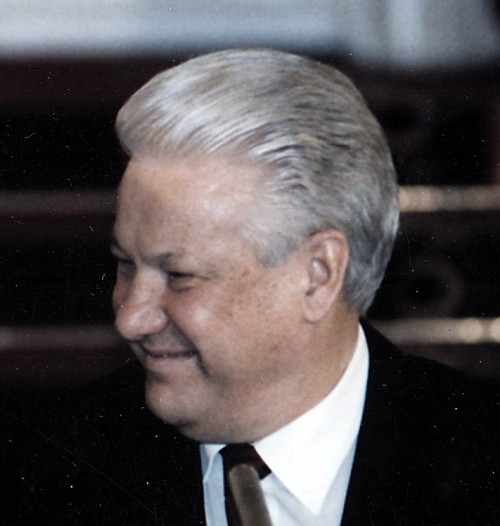
At the age of 46, Putin was handed his “historical mission.” Yeltsin, frail and politically besieged, offered him the post of prime minister. Yeltsin dropped another bombshell shortly afterward by offering Putin his job as president. “Putin’s ascension to the pinnacle of power was so rapid, so unexpected, so astounding that a prominent Russian historian described it in otherwordly terms,” writes Myers.
Putin assembled a political team comprised of people he had known in St. Petersburg and could implicitly trust. They included Dimitri Medvedev, who would become his prime minister, and former KGB friends. A friend from his youth, Arkady Rotenberg — a Jew — was placed in charge of the state enterprise that controlled nearly half of Russia’s alcohol market. “Putin enabled his circle of friends to rise to the heights of the country’s economy, enriching them while ensuring they would control the sectors of the economy — from natural resources to the media — that he considered vital to the nation’s security,” Myers observes.
He kept the oligarchs, the bankers, industrialists and oil men, on a tight leash, allowing them to maintain their wealth as long as they kept their noses out of politics. Mavericks like Vladimir Gusinsky, the Jewish media baron, and Mikhail Khodorkovsky, the half-Jewish billionaire, were hounded out of the country or imprisoned.
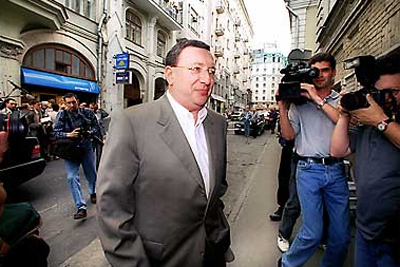
No Jeffersonian democrat, Putin centralized power to such a degree that when Medvedev temporarily succeeded him as president, he still remained the paramount leader.
Although claiming that the dissolution of the Soviet Union was “the greatest geopolitical catastrophe of the century,” Putin had no wish to restore it or bring back communism. Instead, Myers says, he hoped to resurrect Russia’s greatness, particularly its influence in foreign affairs.
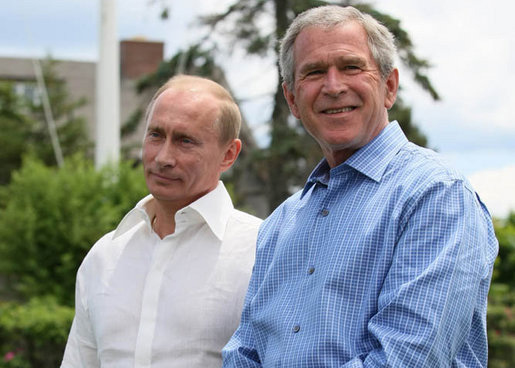
Putin was the first world leader to call U.S. President George W. Bush after the terrorist events of September 11, 2001, hoping to forge cordial relations with the United States. Putin stumbled by opposing the American invasion of Iraq in 2003. On the eve of the war, Putin tried defuse the crisis by dispatching a special envoy to Baghdad to persuade Iraqi President Saddam Hussein to resign. It was a futile errand, since Bush had made up his mind to take out Saddam Hussein.
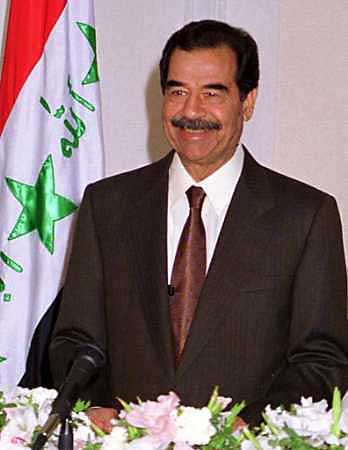
As far as Putin was concerned, the war in Iraq revealed Washington’s desire “to dictate terms to the rest of the world.” Iraq was a turning point in Putin’s effort to seek a new relationship with the United States through his friendship with Bush. As a result of the Iraqi war, and the West’s bombing campaign of Libya in 2011 to depose Russian ally Muamar Qaddafi, Putin grew increasingly suspicious and mistrustful of the United States.
The internal crisis in Ukraine, as well as the second war in Chechyna and Russia’s brief war with Georgia, exacerbated the growing tension between the two super powers.
As he closes The New Tsar, Myers states that Putin faces no obvious challenges to his rule and that he may be around for at least another decade. It’s clear that the fate of Russia is entwined in Putin’s hands.
